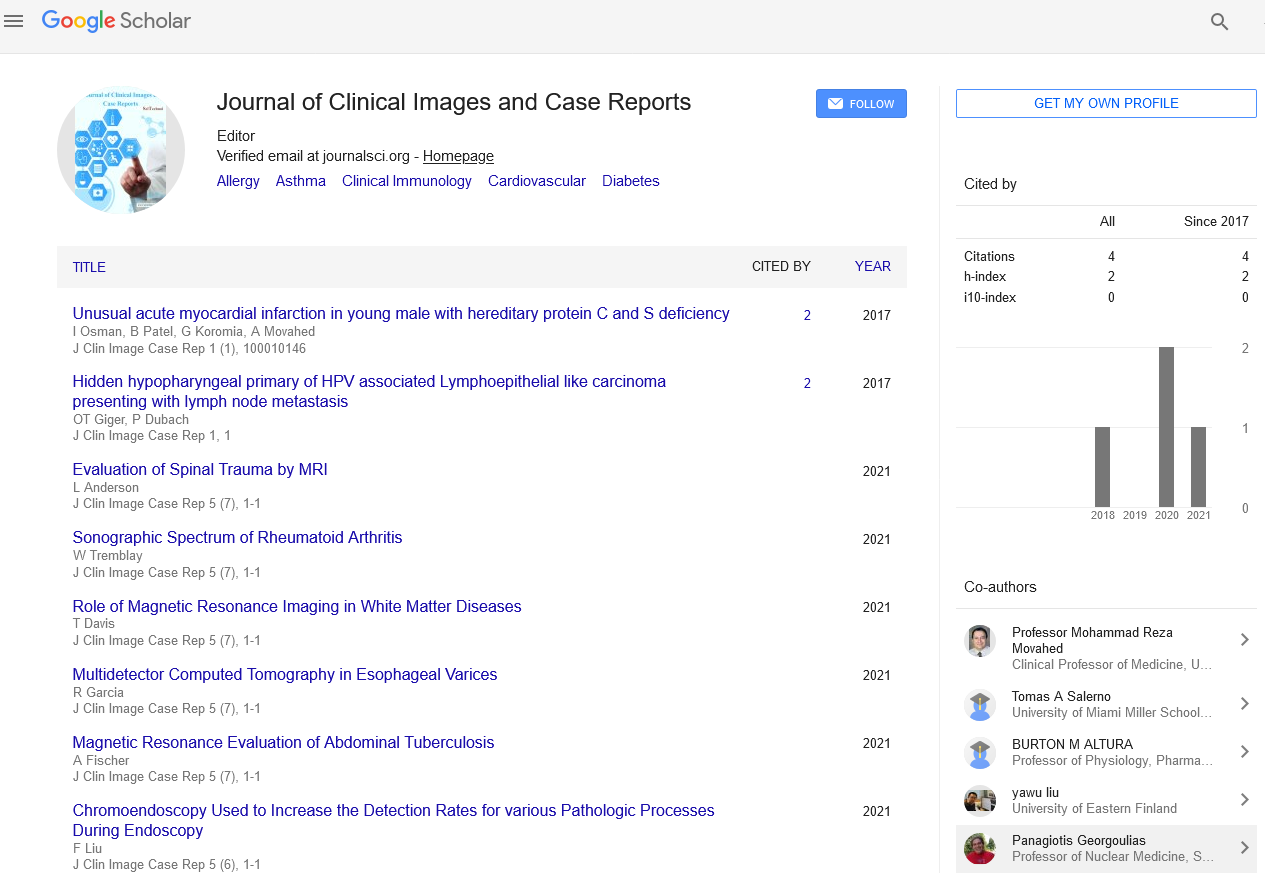Opinion Article, J Clin Image Case Rep Vol: 8 Issue: 6
Examining the Impact of Low-Carb Diets on Diabetes Management
Sanne Roche*
1Department of Nutrition, Maastricht University, Maastricht, The Netherlands
*Corresponding Author: Sanne Roche,
Department of Nutrition, Maastricht
University, Maastricht, The Netherlands
E-mail: rochesanne@gmail.com
Received date: 26 November, 2024, Manuscript No. CICR-24-156418;
Editor assigned date: 28 November, 2024, PreQC No. CICR-24-156418 (PQ);
Reviewed date: 12 December, 2024, QC No. CICR-24-156418;
Revised date: 19 December, 2024, Manuscript No. CICR-24-156418 (R);
Published date: 26 December, 2024, DOI: 10.4172/CICR.1000337.
Citation: Roche S (2024) Examining the Impact of Low-Carb Diets on Diabetes Management. J Clin Image Case Rep 8:6.
Description
Diabetes is a chronic condition that affects millions of people worldwide. It occurs when the body is unable to properly regulate blood sugar levels, leading to hyperglycemia. Managing diabetes involves balancing the intake of carbohydrates, proteins and fats, with a particular focus on controlling carbohydrate consumption, as carbohydrates are broken down into glucose, directly influencing blood sugar levels. Low carb diets have gained significant attention as a potential approach to managing diabetes, particularly type 2 diabetes. By examining the impact of low carb diets on diabetes management, we can better understand their potential benefits and limitations.
A low-carb diet typically involves reducing the intake of foods that are high in carbohydrates, such as bread, pasta, rice and sugary foods. Instead, individuals following a low-carb diet consume more protein and healthy fats. The primary mechanism behind the benefits of lowcarb diets for diabetes is the reduction in carbohydrate intake, which leads to lower blood sugar levels. When fewer carbohydrates are consumed, there is less glucose in the bloodstream, reducing the need for insulin, the hormone responsible for regulating blood sugar.
Numerous studies have shown that low-carb diets can significantly improve blood sugar control in individuals with type 2 diabetes. By reducing carbohydrate intake, patients often experience lower postmeal blood sugar spikes, improved insulin sensitivity and better overall blood glucose control. In some cases, individuals may even be able to reduce their reliance on diabetes medications, particularly insulin.
In addition to improving blood sugar control, low-carb diets may also have other beneficial effects for individuals with diabetes. For example, low-carb diets have been shown to promote weight loss, which is particularly important for individuals with type 2 diabetes, as excess weight is a major risk factor for the condition. Weight loss can further improve insulin sensitivity and reduce the risk of complications associated with diabetes, such as cardiovascular disease.
However, it is important to note that the effectiveness of low-carb diets for diabetes management can vary between individuals. While many people experience significant improvements in blood sugar control, others may not see the same benefits. It is also important to ensure that a low-carb diet is balanced and provides adequate nutrition. Restricting carbohydrates too severely can lead to nutrient deficiencies and other health issues.
Additionally, while low-carb diets have shown promise in managing type 2 diabetes, their long-term effects are still not fully understood. Some studies suggest that low-carb diets may not be sustainable for the long term, as individuals may struggle to adhere to such restrictive eating patterns. It is also important to consider the quality of carbohydrates consumed. A low-carb diet that focuses on whole, nutrient-dense foods, such as vegetables, nuts and seeds, may be more beneficial than one that relies on processed, high-fat foods. Low-carb diets offer a promising approach to managing diabetes, particularly type 2 diabetes. By reducing carbohydrate intake, individuals can achieve better blood sugar control, improved insulin sensitivity and potential weight loss. However, it is important to tailor the diet to individual needs and ensure that it remains balanced and sustainable. Consulting with a healthcare provider or registered dietitian is essential when making significant dietary changes, as they can provide personalized guidance to ensure optimal diabetes management.
 Spanish
Spanish  Chinese
Chinese  Russian
Russian  German
German  French
French  Japanese
Japanese  Portuguese
Portuguese  Hindi
Hindi 